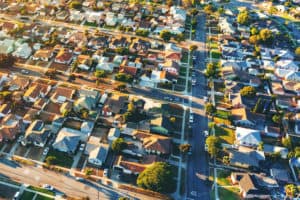You’ve undoubtedly heard the term “Reserve Study.” These words are uttered sometimes during board meetings if you reside in a community with a Homeowners Association (HOA). Perhaps you’ve seen the phrase in your homeowners’ association’s annual budget report.
The findings of the Reserve Study may be used in preparing the budget report and communicating with the owners on the potential impacts of aging.
In addition, vernacular terms, for example, “reserve study” or “reserve assessment,” have been included as part of the official documents of some HOA’s.
What Is the Reserve Study?
The reserve study is a process with a budgeting purpose. This is to identify the areas in which members of the community association should be expected to take enough action to preserve the value of the property of each member.
In other words, the reserve study is intended to provide both a process and goals for identifying and addressing the issues that may negatively affect the value of the shared property.
The reserve assessment is a process intended to protect your HOA’s finances by identifying issues that may negatively affect the value of the shared property. The natural and perceived value of each homeowner’s home in your community determines the value of your HOA’s property. The reserve study is to protect the value of your HOA property by identifying the issues that may negatively affect it.
In other words, your HOA’s property is assessed annually. This is the timeframe for identifying all the issues that may negatively affect the value of your HOA property.
Why Is a Reserve Study Necessary?
Unfortunately, many HOA reserves are underfunded. They do not have enough savings to cover anticipated future expenses. Although not every state requires reserve studies, it is a smart option for every HOA, regardless of laws, to have a professional reserve study performed every few years.
A reserve study assesses the condition of major assets and amenities, forecasts when they will need to be repaired or replaced, and estimates the cost of doing so.
If there isn’t a sufficient reserve fund in place when urgent repair needs arise (think storms or other inclement weather), the HOA will have to scurry to find a way to pay for the repairs. There are a few options available to HOA boards that are short on cash reserves, and none of them are pretty.
These include raising dues, conducting a special assessment (a one-time fee levied against homeowners), and obtaining external financing.
How Often Does My HOA Require a Reserve Study?
Each state has its own rules regarding HOA Reserve Studies. Some require an annual Reserve Study, while others require one every three to five years. Other states go so far as to suggest how frequently they should be done but do not mandate a timeframe.
An annual update of a Reserve Study is the recommended best practice to ensure the best use of HOA funds and the ability to respond responsibly to anticipated events. A review of the current Reserve Study should be conducted at least once a year, and a new updated Reserve Study should be performed every three years.
Do HOAs Have To Disclose the Findings of a Reserve Study?
Yes. California Civil Code 5300 stipulates that HOAs must provide a copy of the Reserve Study to each owner of a home within the community. Moreover, the reserve study must be part of the annual statement of financial information that is distributed to all owners.
Conclusion
The reserve study and assessment are integral to maintaining your community’s value. While a reserve study may be necessary, it is essential to note that the Reserve Study must be part of the annual statement of financial information that is distributed to all owners.
Additionally, the reserve study may be prepared more frequently than once a year. An annual reserve assessment is needed to determine whether standard area maintenance, repair, and replacement are adequately funded.
California Builder Services ‘ professional team offers California HOA budgeting services. We aim to ensure our clients enjoy long-term success and profitability with timely, accurate reports for subdivisions and homeowners associations. Contact us today!







